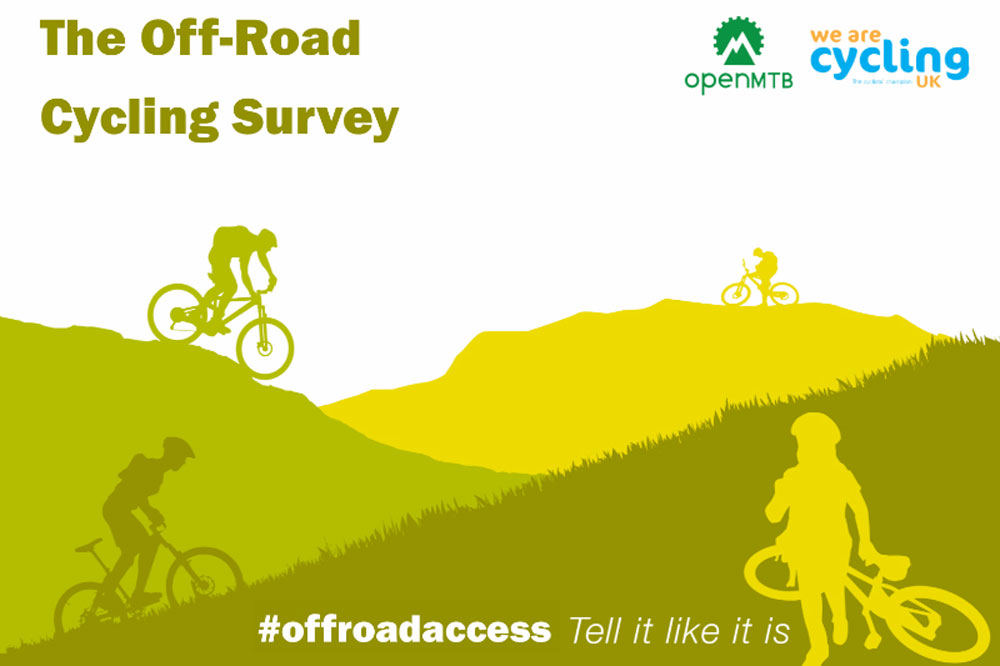Money talks.
Cycling UK (formerly known as The CTC) have introduced an economic argument for rights of way ‘responsible access’ reform for off-road bikes.
Roger Geffen MBE, Cycling UK’s Director of Policy, said: “Despite England enjoying a tourism boom, as ever the rural economy is missing out. This EFRA inquiry is right to look at how we can change this, and facilitating cycle tourism is clearly part of a solution which will benefit tourists and locals alike.”

More of this please
>>> Trails for Wales campaign launches to improve access for mountain bikers
Cycling UK elaborate the financial reasoning: “The EFRA Committee reports that while England has seen a rise in tourism spend in the past year from both domestic and international visitors, the majority of this is in the urban environment, with over 50% of international spend in London. Visit England figures show that in 2014 just 18% of domestic overnight trips were taken to rural areas, down from 22% in 2012.”
Roger Geffen MBE: ““The best way to make cycling easier and more attractive in our countryside is to rethink our rights of way laws. They’re archaic and confusing even to the experts. England should copy Scotland and introduce responsible access laws.
>>> Chris Boardman wants to open up footpaths to bikes in England and Wales
“We’ve seen in Scotland how off-road cycling can thrive in harmony with all other outdoor users while contributing greatly to the local economy. Cycling UK now wants to see England and Wales enjoy the same benefits, which will mean more jobs, less congestion and a greater appreciation of our countryside.”
Responding to the House of Commons Environment, Food and Rural Affairs Committee inquiry “Rural Tourism in England”, Cycling UK argued that rural tourism, currently valued at £17bn a year, would benefit significantly as a result.
Cycling UK’s full response to the EFRA inquiry.
‘Responsible access’ laws would mean cyclists could access the countryside in all areas unless explicitly told they cannot.
In Scotland, which has ‘responsible access’ laws, off-road and leisure cycle tourism is estimated by Transform Scotland to contribute between £236.2m and £358m per year.

As you may have spotted, Cycling UK recently commenced an online survey of off-road rights of ways users.
Cycling UK has a long established history of facilitating better access to the countryside. In 1968 (as The CTC) Cycling UK secured access for cycles to use bridleways. We wouldn’t be able to ride anywhere without that!
The organisation later fought successfully for a presumed access policy in the Scottish Land Reform Act (2003), and ensured that the Natural Environment and Rural Communities Act (2006) had it so that restricted byways rights could be claimed on the basis of past cycle use.
Cycling UK’s response includes the following recommendations
“Bodies responsible for promoting cycle tourism should learn from the success of rural traffic-free recreational cycle routes, and how these routes can promote the tourist economy.
“Extending tax breaks currently available for rural businesses (such as village pubs and petrol stations) to rural cafés and other enterprises which support rural tourism. This could include those selling or hiring out bicycles, adapted cycles (which can be used by people of all abilities) and electrically assisted pedal cycles.
“Rural tourism can and should be seen as complementary to traditional land uses and rural industries, rather than perceived as working against them.
“Where a National Park covers parts of several highway authorities, they should consider delegating their highway powers to the National Park authority, enabling it to manage the provision of parking facilities, public transport and sustainable transport planning within the park.”




